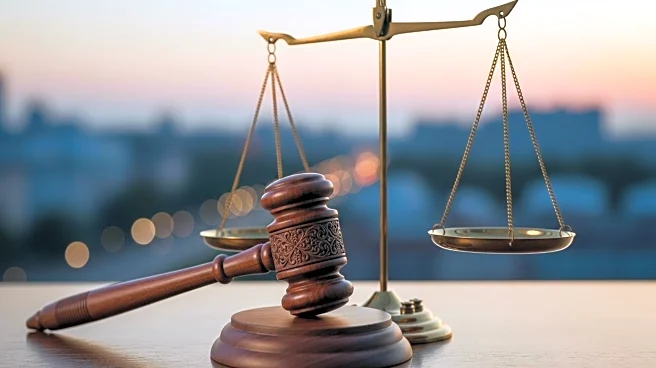What's Happening?
A federal judge in Portland is set to rule on whether to temporarily block the deployment of 200 Oregon National Guard troops to the city, a move initiated by President Trump. The decision follows a legal challenge from the state of Oregon and the city of Portland, who argue that the deployment violates the 10th Amendment, which reserves police powers to the states. The deployment, announced by Trump and Secretary of Defense Pete Hegseth, is intended to protect federal buildings, including an ICE facility, amidst ongoing protests. The protests, which have been mostly peaceful, have seen increased participation following the announcement of federal troop deployment. The state and city argue that the deployment could incite further unrest and cause financial harm to the troops, who would not be paid due to the ongoing federal government shutdown.
Why It's Important?
The case highlights tensions between federal and state authorities over the use of military forces in domestic situations. The outcome could set a precedent for federal intervention in state matters, particularly in response to protests. The deployment has been criticized as an overreach of federal power, potentially infringing on state sovereignty and the rights of citizens to protest. The financial implications for the National Guard members, who would not receive pay during the government shutdown, add another layer of complexity. The decision could influence future federal responses to civil unrest and the balance of power between state and federal governments.
What's Next?
Judge Karin Immergut is expected to make a decision by the weekend. If the temporary restraining order is granted, it would halt the deployment of the National Guard to Portland. The broader lawsuit filed by Oregon and Portland against the Trump administration could continue, challenging the legality of the deployment under the Posse Comitatus Act, which restricts military involvement in domestic law enforcement. The ruling could prompt reactions from political leaders and civil rights groups, potentially influencing public opinion and policy regarding federal intervention in state affairs.
Beyond the Headlines
The case raises questions about the use of social media by political leaders to announce significant policy decisions. The reliance on a social media post by President Trump as justification for the deployment has been criticized, highlighting concerns about the informal nature of such communications in serious governmental actions. The situation also underscores the ongoing debate over the militarization of responses to civil protests and the potential chilling effect on free speech and assembly rights.









